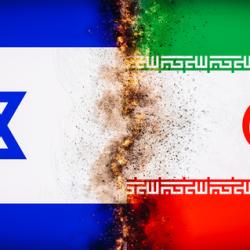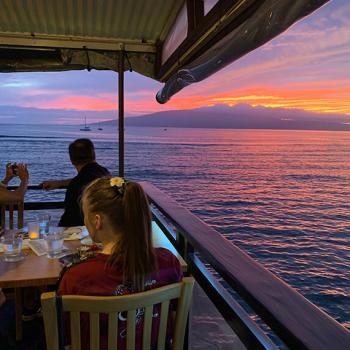Editors' Note: This article is part of the Patheos Public Square on the Future of Faith in America: Islam. Read other perspectives here.
I live in dread of what James Baldwin called "the fire next time" — the next terrorist attack by an American Muslim. When news first broke of a massacre inside a South Carolina church, I did what I always do — I prayed he was not a Muslim. I confess to sighing when the church video of Dylann Roof appeared and a picture emerged of a hate crime against the nine black parishioners at Emanuel African Methodist Episcopal church in Charleston. I could share with my country the shock and hurt and outrage at the attack. (Of course, my relief was short-lived. Mohammad Youssuf Abdulazeez would kill four Marines at military recruiting centers a few weeks later.)
As the nation and, more importantly, the south engaged in long overdue but sincere soul searching about the meaning of the Confederate flag, I noticed something different. On Twitter and in the media, non-Muslims began to ask if this was not an act of terror. They did more than ask; they said it was an act of terror impelled by racial hatred. Some went as far as to find the Confederate flag an American incarnation of the ISIS flag. Whether or not the analogy quite plays out, they conceded that non-Muslims were capable of terrorism. Southern hatred of blacks was not so far afield from ISIS's hatred of Christians and 'deviant' Muslims.
I call this progress, yes, progress, if only a progress of mere increments, a slow national awakening. For now, we must make peace with a progress of increments, even of the two-steps-forward-one-step-back variety. The nation may gradually see that Muslims do not have the market cornered on acts of terror, but it remains for Muslims to do the heavy lifting. And in fairness to the American umma, we have taken on the challenge in the most American of spirits, forming civil rights organizations, speaking out against terror, defending true Islam.
Sadly, for all our progress, we are often victims of the terrorist's veto, a stylized video beheading with effects worthy of Hollywood, ISIS internet trolls, foreign mosque bombings, and the next terrorist act of an American Muslim. These acts will always drown out the progress of American Muslims. But we have other, more important business at hand and that is to create an American Islam, not a reactionary, empty Islam of guilty Muslims, but something that is real.
In no country is this more possible than America. French Muslims, for instance, cannot play the uniquely American music of plurality and diversity. They must be nominally French and they must be quiet and marginalized. This American Islam, however, must have the 'goods.' We cannot throw away valid Islamic theology buttressed by study and reflection to please the very people who will always hate us. Western Muslims who make a claim for Islam will always need 'street cred' in the eyes of Middle Eastern Muslims. This often comes to us in the form of well-meaning foreign-born imams whose Islamic education is one of rote and, pointedly, who do not understand America. To paraphrase what Malcolm X said about being a real American, do not come to me with nothing on your plate and call yourself dinner.
At the same time, we cannot fall victim to ignorance about Islam, however good our intentions. Our work requires a passport. Some, especially younger, American-born Muslims, have traveled to the Middle East to study with scholars just as Ibn Battuta did. They have wrenched genuine knowledge from countries lost in tribalism and conflict. They have returned and established communities culturally rooted in America.
There is another often overlooked challenge: being a believer in the West. Like any citizen of the world, the media teaches us that only those who act in violence can make a claim to being true Muslims. Thus, our genuine, sometimes quiet, Islam can seem weak and frail. Terrorists promise us we are not true believers because we do not wield AK-47s and can distinguish between Islam and Islamic history. Note that this is for each of us a private business for which the stakes are our faith.
How does one practice Islam and find peace in the age of ISIS? How does one get those brutal images of out of one's mind, pray with a clear head, and know that practice which is often quiet, reflective, self-empowering, and nuanced is genuine Islam? Can we have the peace that Islam offers us? Why do we doubt ourselves? Why do we question the validity of our faith vis-à-vis the Muslim world? I still think our progress will be one of increments but I find myself continually heartened by the confidence and creativity of younger, American born Muslims.
8/12/2015 4:00:00 AM




